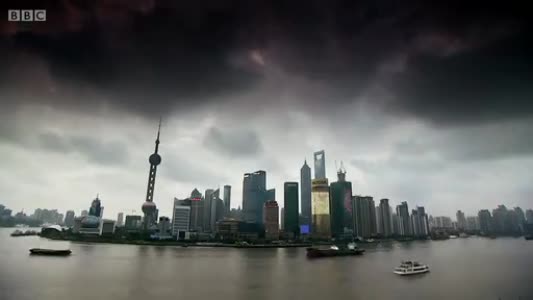Did the Chinese economy really fool the world?
- By Yi Xianrong
 0 Comment(s)
0 Comment(s) Print
Print E-mail China Digest, August 15, 2014
E-mail China Digest, August 15, 2014
|
|
"How China Fooled the World?" An eye catching title, to be sure. It is also controversial, engendering debate on topics such as the difference between Eastern and Western ideology, as well as the different development strategies that China and U.S. pursue. But to be honest, the whole documentary only focuses on one issue – is China's post-Great Recession economic prosperity realistic and sustainable? Robert Peston offered answers to this question in the documentary, a reflection of his own experiences, value orientation and personal preferences. The film's producers do not force the viewer to swallow Robert Peston's views as correct; it is up to viewers' own judgment to make that decision. My own thought? No one is fooling anybody.
The key to this question is to know what happened to the Chinese economy in the five years following the 2008 financial crisis. What were the driving forces behind Chinese economic growth amid global economic recession? Is this growth sustainable? If not, why?
The U.S. economy was hit heavily as the global financial turmoil began to unravel in September 2008. However, it would be spurious to say that China was not affected as well. The crisis totally reversed Chinese economic policy, and this forms the background for the documentary.
While attending a pre-recession September 2008 conference on real estate in the Chinese economy, I put forward my opinion that during economic downturn, the government "shouldn't, couldn't and mustn't" intervene in the housing market as the market will adjust itself. Most attendees at the conference agreed with me. However, after the fall of Lehman Brothers in mid-September, the policy trends in China's real estate sector experienced just the opposite. A stimulus package estimated at 4 trillion yuan (about $570 billion) was introduced to finance programs in 10 major sectors including the housing market. China also loosened its credit conditions and relaxed previous property restrictions. As a result, China's GDP continued its rapid growth despite adverse global economic conditions, as detailed in the documentary. This marked the beginning of China's real estate-driven economy.
In fact, the economic situation in China is totally different from that which Western countries were confronted with (there was no financial crisis in China at all). In spite of this, the Chinese version of the stimulus package drove huge amounts of investment into infrastructure and allowed excessive credit expansion, which in turn led to explosive growth in the real estate market. Other related areas such as building materials also enjoyed the benefits as sales in these sectors increased dramatically. The Chinese economy, and the country's land market especially, embarked on a time of prosperity.
It is important to know that China's economic growth between 2009 and 2013 was based entirely on excessive credit expansion by the Chinese banking system. Over that period, Chinese bank debt grew by 45 trillion yuan (about $7.3 trillion), with total private sector financing aggregated to 65 trillion yuan (about $10.5 trillion). A large amount of those funds circulated from banks to the real estate sector and pushed up asset prices, rather than flowing into economic entities more suitable for value creation. In turn, soaring housing prices absorbed more funds from other areas, making the situation worse. As a result, land markets have undergone a surge in value, and local governments began to obsess with large scale investment into urban construction. The Chinese economy had entered into its Age of Real Estate.
By relying on excessive credit expansion and land sales, China has maintained its economic prosperity. However, GDP growth is fueled by real estate and other related industries (accounting for more than 30 percent of GDP), with rapid housing appreciation at its core. If the surging housing prices are affordable to most citizens, then the current GDP growth model is sustainable. However, the current soaring housing prices are primarily due to real estate speculation. If this continues, the growth will not last long. That is why the new Chinese leadership has resolved to change the modes of economic growth and pursue a new one that emphasizes "high quality growth".







Go to Forum >>0 Comment(s)